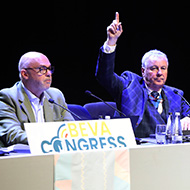CVS Group sells Dutch and Irish businesses for €2
CVS Group has seen significant fianncial losses in its subsidiaries.
CVS Group PLC is to sell its non-core operations in the Netherlands and the Republic of Ireland for just €2.
The corporation announced its decision on Tuesday, stating that the businesses were ‘loss-making’.
Operations in both the Netherlands and the Republic of Ireland have resulted in financial loss for CVS Group. In the financial year ending 30 June 2023, the businesses made the corporation a loss of £6.8m before tax.
They were forecast to end the next financial year with a further loss of £6m.
The businesses have now been sold to Global Veterinary Excellences Limited, for the price of just €2 (£1.70).
Global Veterinary Excellences Limited is owned by James Cahill, a veterinary surgeon and former director of the subsidiaries. Dr Cahill previously worked for CVS Group for six years, and has over 30 years’ experience in the industry.
This decision was made by CVS Group’s chief executive officer, Richard Fairman, in response to the negative contribution the business were making to cash flow. The CEO felt that significant management focus would have been needed to address their failing operational performance.
The sale comes at a challenging time for the large corporation which, in April, was hit by a cyber attack.
The group, which owns 450 practices in the UK, found that unauthorised external access had been made to some of its IT systems. It was forced to take its IT systems temporarily offline, and reported the incident to the Information Commissioner’s Office.
Large corporations like CVS Group also made the headlines in March, when the Competition and Markets Authority (CMA) reported that consolidation from corporate groups could be weakening the veterinary market.
The CMA’s findings suggested that these corporations were limiting consumer choice, by investing in and promoting higher cost treatments to their clients.
Despite these challenges, Mr Fairman said that the low-value sale formed a part of CVS Group’s growth strategy.
Mr Fairman said: "Our Netherlands and Ireland practices no longer fit with our strategy of focusing on growth in the UK and Australian markets.
“We have exciting plans to expand in Australia and this disposal will free up working capital and management capacity to support our continued expansion.”
Image © Shutterstock



 The British Equine Veterinary Association (BEVA) is to allow its registered veterinary nurse (RVN) members the right to vote.
The British Equine Veterinary Association (BEVA) is to allow its registered veterinary nurse (RVN) members the right to vote.